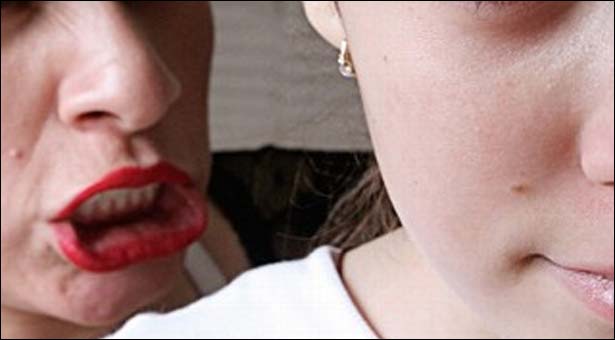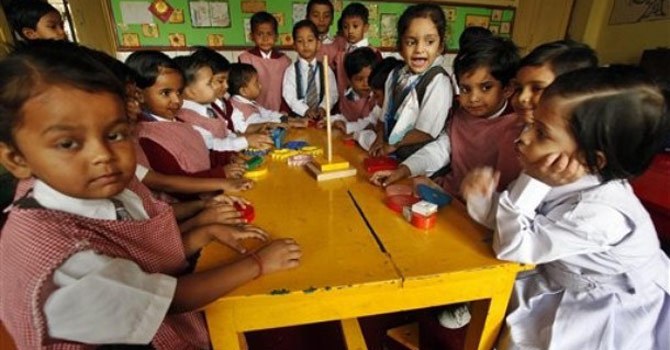- Web
- Humsa
- Videos
- Forum
- Q2A



WASHINGTON: Mothers with a certain gene got meaner when the economy took a dive in 2007-2009, whether or not their own purses were shorter on cash, US researchers said Monday. The study in the Proceedings of the National Academy of Sciences suggests that environment can have a major impact on behavior, particularly when genetic variations are taken into account. The effect of hard times on harsh parenting was "modest but highly significant," researcher Dohoon Lee of New York University told AFP. For each 10 percent increase in the unemployment rate, women with the sensitivity gene reported 2.3 more harsh parenting behaviors, while mothers as a whole reported 1.6 more, he said. Researchers measured harsh parenting using a scale of five psychological and five physical measures, such as shouting, threatening, spanking and slapping. The data for analysis came from more than 2,600 women in the Fragile Families and Child Wellbeing Study. The participants include some 5,000 children born in 20 large American cities between 1998 and 2000. Their mothers were interviewed at various intervals following the birth of their children, including three, five and nine years afterward. DNA samples were also collected from the mothers at the nine-year point. The women who had the sensitive allele, or variation, of the DRD2 Taq1A genotype, showed an increase in harsh behavior when the economy took a turn for the worse during the recession of 2007-2009. This gene variation is linked to the release of dopamine, a chemical in the brain that regulates how individuals respond to threats and rewards. "Mothers with the 'sensitive' genotype did worse than their counterparts in a deteriorating economy and better in an improving economy," said the PNAS study. Some previous research has shown that people with this variation "are more susceptible to reactive aggression," it added. Researchers used the consumer sentiment index and city unemployment rates to gauge the health of the economy. Even when researchers accounted for changes in individual family income, the effects of the macroeconomic conditions remained the same, while the effect of losing a job in the family did not appear to be statistically significant. Still, researchers said "caution is warranted" in interpreting the finding, saying that "actual reductions in income between interviews did result in greater harsh parenting." Overall, the study bolsters the "orchid-dandelion" theory of why some are tougher than others, explained co-author Irwin Garfinkel, professor of contemporary urban problems at the Columbia University School of Social Work. "Humans with sensitive genes, like orchids, wilt or die in poor environments, but flourish in rich environments, whereas dandelions survive in poor and rich environments," he said. According to co-author Sara McLanahan, a professor of sociology at Princeton University, the findings show that fear of the worst can lead to negative behaviors. "People can adjust to difficult circumstances once they know what to expect, whereas fear or uncertainty about the future is more difficult to deal with," she said.
 Hundreds of thousands of Iranians with serious illnesses have been put at imminent risk by the unintended consequences of international sanctions, which have led to dire shortages of life-saving medicines such as chemotherapy drugs for cancer and bloodclotting agents for haemophiliacs.
Western governments have built waivers into the sanctions regime..... Read more
Hundreds of thousands of Iranians with serious illnesses have been put at imminent risk by the unintended consequences of international sanctions, which have led to dire shortages of life-saving medicines such as chemotherapy drugs for cancer and bloodclotting agents for haemophiliacs.
Western governments have built waivers into the sanctions regime..... Read more
 Thousands of Kuwaitis demonstrated Saturday to demand dissolving the new parliament elected last week despite a massive boycott as the oil-rich Gulf state plunged into political stalemate.
“This parliament is illegitimate, this (electoral law) amendment is illegal,” chanted the protesters, who included a large number of women and children, as ..... Read more
Thousands of Kuwaitis demonstrated Saturday to demand dissolving the new parliament elected last week despite a massive boycott as the oil-rich Gulf state plunged into political stalemate.
“This parliament is illegitimate, this (electoral law) amendment is illegal,” chanted the protesters, who included a large number of women and children, as ..... Read more
 Indian Army Chief General Bikram Singh on Wednesday briefed the Cabinet Committee on Security (CCS) on an alleged Chinese incursion in the disputed Eastern Ladakh region amid calls by rightwing hawks in Delhi to escalate the standoff.
The CCS meeting took place amid a proposal to send Indian Foreign Minister Salman Khurshid to Beijing with a clear brief..... Read more
Indian Army Chief General Bikram Singh on Wednesday briefed the Cabinet Committee on Security (CCS) on an alleged Chinese incursion in the disputed Eastern Ladakh region amid calls by rightwing hawks in Delhi to escalate the standoff.
The CCS meeting took place amid a proposal to send Indian Foreign Minister Salman Khurshid to Beijing with a clear brief..... Read more












 Clean Chit (Faisal Raza Abidi ...
Clean Chit (Faisal Raza Abidi ...  Akhir Kiyon - 16th December 2...
Akhir Kiyon - 16th December 2...  To The Point - 16th December ...
To The Point - 16th December ...  Capital Talk â
Capital Talk â  Kal Tak - 16th December 2013
Kal Tak - 16th December 2013  Bay Laag - 16th December 2013
Bay Laag - 16th December 2013  Kharra Sach - 16th December 2...
Kharra Sach - 16th December 2...  Awaam - 15th December 2013
Awaam - 15th December 2013 





 Gold Miner
Gold Miner  Superbike GP
Superbike GP  Whipsaw Fighter
Whipsaw Fighter  PacMan
PacMan 


